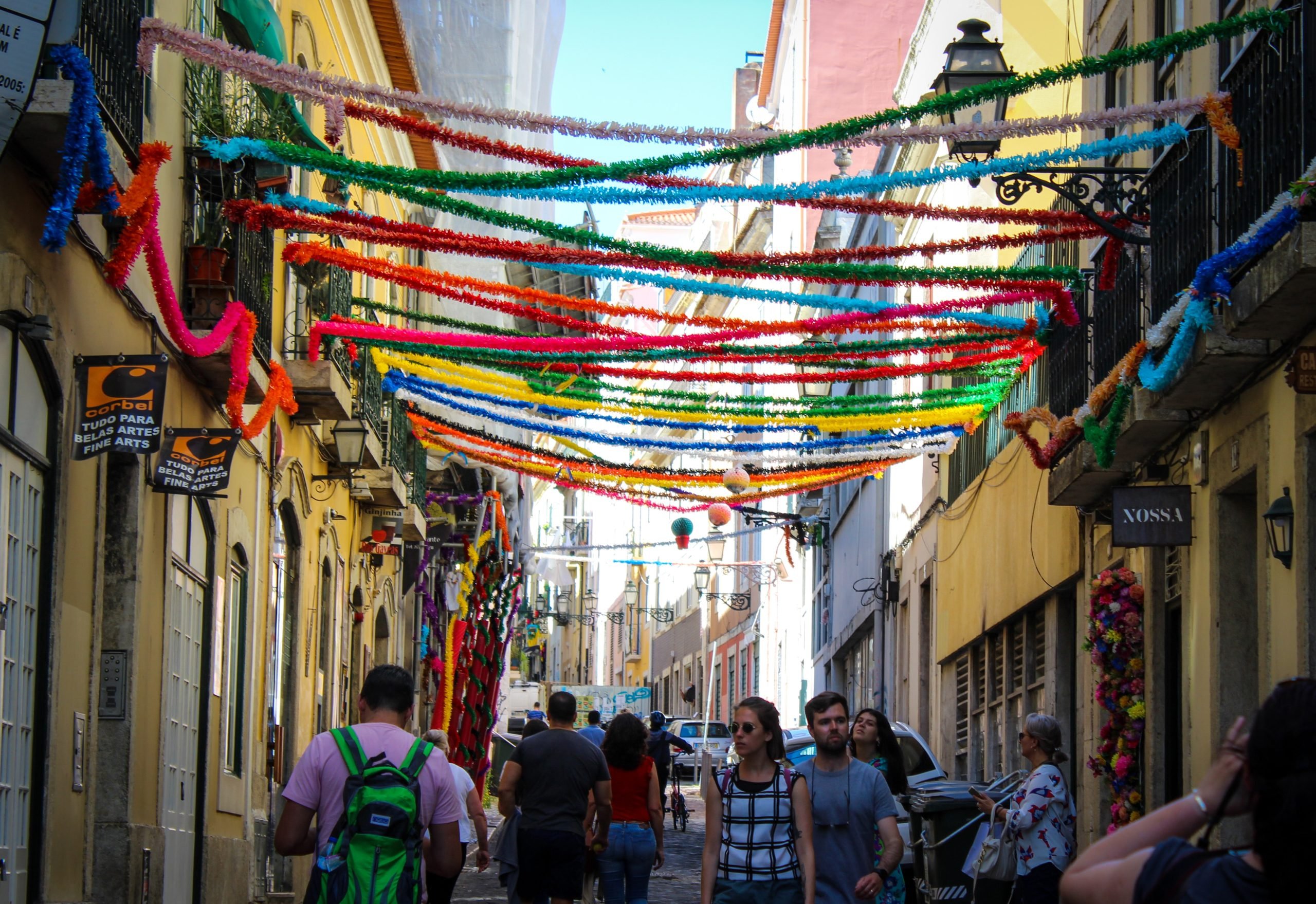The question of whether Portugal is a poor or rich country is a complex one to answer. In terms of GDP, Portugal ranks #47 in the world and falls way behind major economies such as the USA and the UK.
Nevertheless, the European Commission’s projects place Portugal as the European country with the highest growth in 2022.
Portugal also still remains a country dealing with poverty, with over 9% of the population living in such conditions. Salaries remain comparably low to the cost of living.
While many argue Portugal is relatively affordable, this is not the case for those receiving a Portuguese wage.
A 2022 study called “The Cost of Living Crisis: How big is the gap between outgoings and incomings around the world” found that Lisbon is the third most expensive city to live in in the world, taking into account income and cost of living.
Poverty in Portugal: Is Portugal a poor country?
If this question refers to GDP, Portugal is not necessarily a poor country. However, how many people live in poverty in Portugal?
Over 1.6 million Portuguese people lived below the poverty line in 2020, meaning less than 540 euros per month. This amounts to 9.5% of the population working in Portugal.
Only the following countries in Europe have more people living in poverty: Romania (14.9%), Spain (11.8%), Germany (10.6%), Estonia (10%), Greece (9.9%), Poland (9.6%), and Bulgaria (9.6%).
Moreover, according to the National Institute of Statistics, 17.2% of the population in Portugal was at risk of poverty in 2018, amounting to 1.7 million people. Portugal remains one of the countries in Europe with the highest risk of poverty among workers.
Those between the ages of 18 and 64 are most at risk of poverty, as well as those living in less populated areas.
Salaries in Portugal
In 2022, the national minimum salary in Portugal is €705 a month before tax. This value refers to 14 salaries, including the two extra payments on Christmas and summer. If you look at 12 salaries, it amounts to €822.50.
If you receive the minimum salary, after paying income tax, you receive around €630. Those working in restaurants, hotels, stores, cleaning, and more tend to receive the minimum wage.
The average gross monthly salary is €1,361. As Portugal has a progressive taxation system, those receiving the average salary will pay more. After paying income tax and social security, you will be left with €960.
However, sadly, over half of young people up to 34 years old make less than €767 a month. Only 3% of young people make more than €1,642 a month.
Along with cultural norms, the salaries in Portugal make it so that the average Portuguese person only leaves their parent’s home at 33.6 years of age, the oldest in the European Union (EU). The average age at which young people leave their parental home in the EU is 26.5 years.
There are exceptions to these low salaries. Certain jobs pay a lot better, but the vacancies are low, and oftentimes over a decade of experience is required.
The best paid jobs in Portugal include: general director in the private health sector (€120k – €150 per year), chief information officer (€110k – €140k per year), and commercial director (€100k – €150k per year).

Why are salaries in Portugal so low?
It is incredibly complex to explain why salaries in Portugal are so low. Those center-right and right will argue that this is the case due to high corporate taxation, as companies cannot afford to increase salaries.
However, those on the left argue that lower taxation would not mean corporations would pay their workers more. Instead, they want to raise the minimum salary.
Nevertheless, there are huge disagreements on a fair amount, with parties such as the Portuguese Communist Party wanting an €850 minimum salary by early 2023. This will not happen. Instead, the minimum salary is set to increase to €760 in 2023 by €55.
The government has also proposed that the minimum salary should grow to €814 in 2024, €855 in 2025, and €900 in 2026.
Is Portugal a developed country?
The Human Development Index (HDI) was created by the United Nations to assess the development of a country. It measures different factors such as the standard of living, education, and life expectancy.
Under the UN’s definition, Portugal is thus highly developed, with a score of 0.866 in 2021. A score between 0.8 and 1.0 refers to very high human development.
Portugal scored above the world average of 0.732 in 2021. However, Portugal does score below the USA with 0.921 and the United Kingdom with 0.929.

Portugal’s Economy
Portugal’s economy ranks number 47 in the world in terms of GDP in 2020. As of 2021, Portugal’s GDP stands at 249.9 billion USD.
How does that compare to other countries?
Greece has a GDP of 216.2 billion USD, while other European nations such as France (2.937 trillion USD) and Spain (1.425 trillion USD) have higher GDPs. The USA’s GDP stands at 23 trillion USD.
In October 2022, Portugal’s central bank raised its 2022 economic growth forecast to 6.7% instead of the previously projected 6.3%. This is predominantly due to a strong recovery in the tourism industry and higher private consumption.
However, in 2023, a slowdown is projected. Back in 2021, Portugal’s economy grew by 4.9%.
What makes Portugal rich?
In terms of GDP, Portugal is not necessarily considered a “rich” country, ranking number 47 worldwide. A country’s richness cannot also be measured solely through GDP.
However, the Portuguese economy has been growing in recent years, despite the negative impact of the Covid-19 pandemic.
The tourism industry is the biggest sector of the Portuguese economy. In 2019, travel and tourism contributed 41.4 billion USD to the GDP. This slow downed in 2021 (19.2 billion USD) but increased in 2021 after the pandemic (25.5 billion USD).
The tourism industry employed 266,600 people in the first quarter of 2022, 45,200 more than the same period last year.

Moreover, Portugal’s trade has a great impact on the economy. Portugal’s economy ranks number 43 in total exports and number 40 in total imports in the world. When it comes to exports, Portugal’s economy heavily relies on leading Portuguese companies, including EDP (electric utilities), Galp Energia (oil and gas), and Jeronimo Martins (food).
In 2021, Portugal exported $75.1 billion worth of goods, around a 20% increase since 2017.
Two-thirds of exports from Portugal were bought by Spain (26.7%), France (13.1%), Germany (11%), the USA (5.6%), the UK (5.2%), Italy (4.5%), Netherlands (3.9%), Belgium (2.5%), Angola (1.5%), Poland (1.4%), Morocco (1.4%), and Sweden (1.2%).


